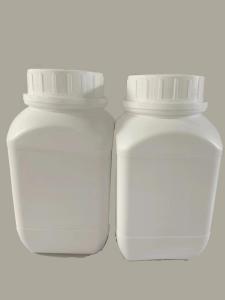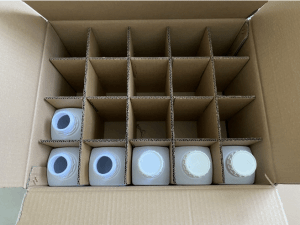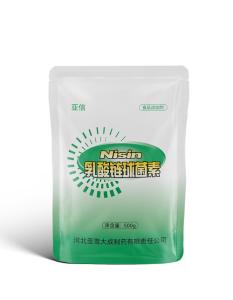

|
- Createtime: 2023-02-24
- Updatetime: 2024-11-27
1. Chemical Composition
Nisin is a peptide compound composed of 34 amino acid residues. These amino acids are linked together by peptide bonds, forming the unique chemical structure of nisin.
2. Chemical Stability
pH Dependency: The stability of nisin largely depends on the pH of the solution. Under acidic conditions (e.g., pH 2-3), nisin exhibits good stability and can withstand high-temperature treatments (e.g., 121°C for 15 minutes). However, as the pH increases, its stability gradually decreases. Under neutral or alkaline conditions, nisin may lose activity or experience reduced solubility.
Thermal Stability: Under suitable pH conditions, nisin has a certain degree of thermal stability. For example, in skimmed milk at pH 6.5, after pasteurization at 85°C for 15 minutes, only 15% of its activity is lost, indicating that it can maintain antibacterial effectiveness during food processing.
3. Chemical Reactivity
As a polypeptide substance, nisin has a certain level of chemical reactivity. It can react with various chemical substances such as acids, bases, and oxidizing agents. However, under normal food processing and storage conditions, these reactions typically do not lead to a loss of nisin's activity or the formation of harmful substances.
4. Solubility
The solubility of nisin is closely related to its chemical properties. As mentioned earlier, its solubility in water depends on the pH. Under acidic conditions, its solubility is higher, whereas, under neutral or alkaline conditions, its solubility decreases or even becomes insoluble. This characteristic of solubility allows nisin to exert its antibacterial effects more effectively under specific conditions.
5. Antibacterial Mechanism
The antibacterial mechanism of nisin is achieved by interfering with the normal function of bacterial cell membranes. It binds to the cell membrane and disrupts its integrity, leading to the loss of intracellular nutrients and a decline in membrane potential. This damaging effect ultimately results in the death of pathogenic and spoilage bacteria.
Nisin possesses unique chemical properties, including its composition, stability, and reactivity, which contribute to its broad application prospects in the food and pharmaceutical fields, particularly as an effective food preservative.
-
2023-03-13
How is Nisin produced?
Nisin is a naturally occurring antimicrobial peptide that is produced by certain strains of bacteria, particularly Lactococcus lactis. The process of nisin production involves the ...
MORE -
2023-03-14
How is ε-Polylysine hydrochloride produced?
ε-Polylysine hydrochloride, also known as ε-PL or Poly(ε-lysine), is a natural biopolymer composed of ε-lysine monomers. ε-PL is known for its antimicrobial properties and has...
MORE
- Tel:+8618231198596
- Whatsapp:18231198596
- Chat With Skype










